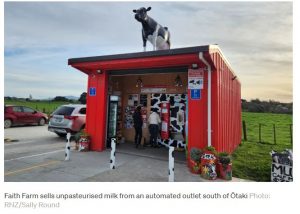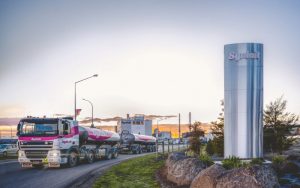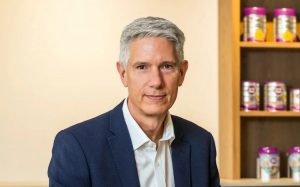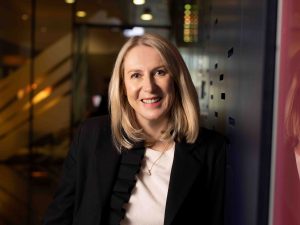
The company’s previous strategy of not owning stainless steel, while appropriate when it was a high risk start-up, “is no longer appropriate” for a company with about $1.5 billion of revenue and a large Chinese business, chairperson David Hearn said on the sidelines of the annual meeting in Auckland on Friday.
A2 Milk’s processing partner Synlait Milk is the exclusive manufacturer for a2 Milk’s infant formula for the Chinese market, and holds the Chinese SAMR regulatory license for the product. China is the world’s largest infant formula market and makes up the bulk of a2 Milk’s sales.
“We need to own our own license, which we don’t,“ Hearn said. “The SAMR regulator, perhaps uniquely, does not regulate the business through the brand owner, it regulates the business through the manufacturer. The holder of our license is Synlait, not us.
“That doesn’t matter at one level, because we’re close partners. But if you think long term as a business, it’s not responsible for us to have a very large market cap based on a license we don’t own.”
Synlait and a2 Milk are in the process of registering a2 Milk’s Chinese label infant formula under a new Chinese standard.
Hearn said owning the end-to-end supply chain would also give a2 Milk access to greater innovation and technology which would drive product innovation, and having multiple sources of product would help de-risk the business.
A2 Milk has already started its investment in factories, last year buying a 75% stake in the Mataura Valley Milk factory in Southland, and the company has flagged its plans to acquire additional manufacturing capability in New Zealand and China.
Hearn noted the company had recently made two significant appointments of specialists who would be instrumental in developing a2 Milk’s plan.
In September, the company appointed Chinese-based manufacturing and supply chain specialist David Wang as a board director, and last week, it announced the appointment of former Yashili and Danone executive Chopin Zhang to a new role as chief supply chain officer.
RNZ
Today on The Detail Emile Donovan talks to Sam Dickie, a senior portfolio manager at Fisher Funds, to talk about the company’s roller coaster ride, and how one of its greatest strengths has become its greatest weakness.
A2 Milk expects to start implementing a five-year plan to build and operate factories in the 2023 calendar year, he said.
“It could be in China, it could be in New Zealand, it could be somewhere else – I don’t know,” Hearn said. “Our commitment is to build an end-to-end supply chain and how that will pan out, we don’t know yet.
“We need to get an expert set of views about what are the risks and opportunities in various locations.”
Developing its own factories did not mean a2 Milk’s partnership with Synlait would change, he said.
“I see no reason why our engagement with and closeness to Synlait will necessarily change,” he said. “They have been a great partner, so any plan we develop, we will have to take that into account.
“It means that we may well want to put another license in place in another facility we own so we have got control of the license as well,” he said.
A2 Milk holds a 19.8% shareholding in Synlait, which is the exclusive manufacturer for its infant formula for the Chinese, Australian and New Zealand markets until 2025, and will also supply its infant formula to the United States after a2 Milk this month gained regulatory approval to sell into the market.
Synlait’s controlling shareholder is Chinese dairy company Bright Dairy with a 39% holding.
Meanwhile, a2 Milk has an exclusive import and distribution arrangement with China State Farm Agribusiness which is a subsidiary of China National Agriculture Development Group Co, the parent company of China Animal Husbandry Group, which holds the remaining 25% stake in Mataura Valley Milk.
A2 Milk had net cash of $816.5m at the end of its June 30 financial year, and this month began buying back up to $150m of its shares.
Hearn said the company was not returning more to shareholders because it needed to fund its future plans.
“One thing you can be sure of is that strategy is going to involve money, so we are keeping our flexibility so we can do whatever we decide,” he said. “When you start building bits of significant kit to supply a business like ours, you are spending hundreds of millions, not tens of millions.”























